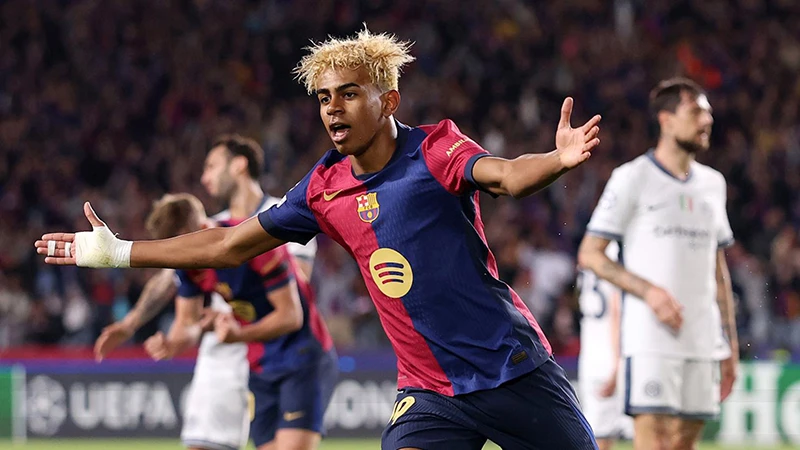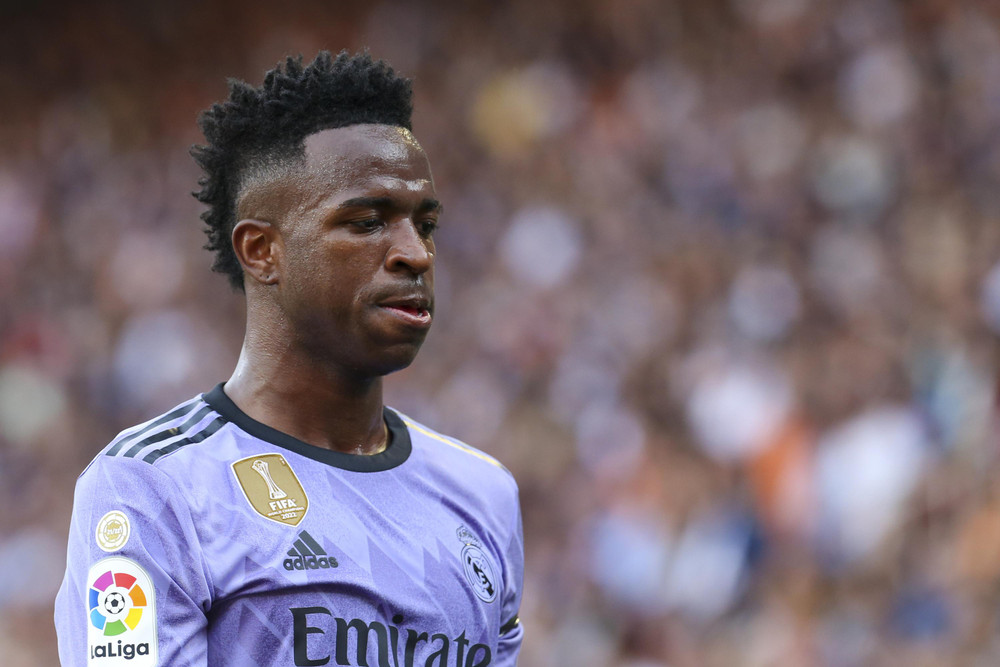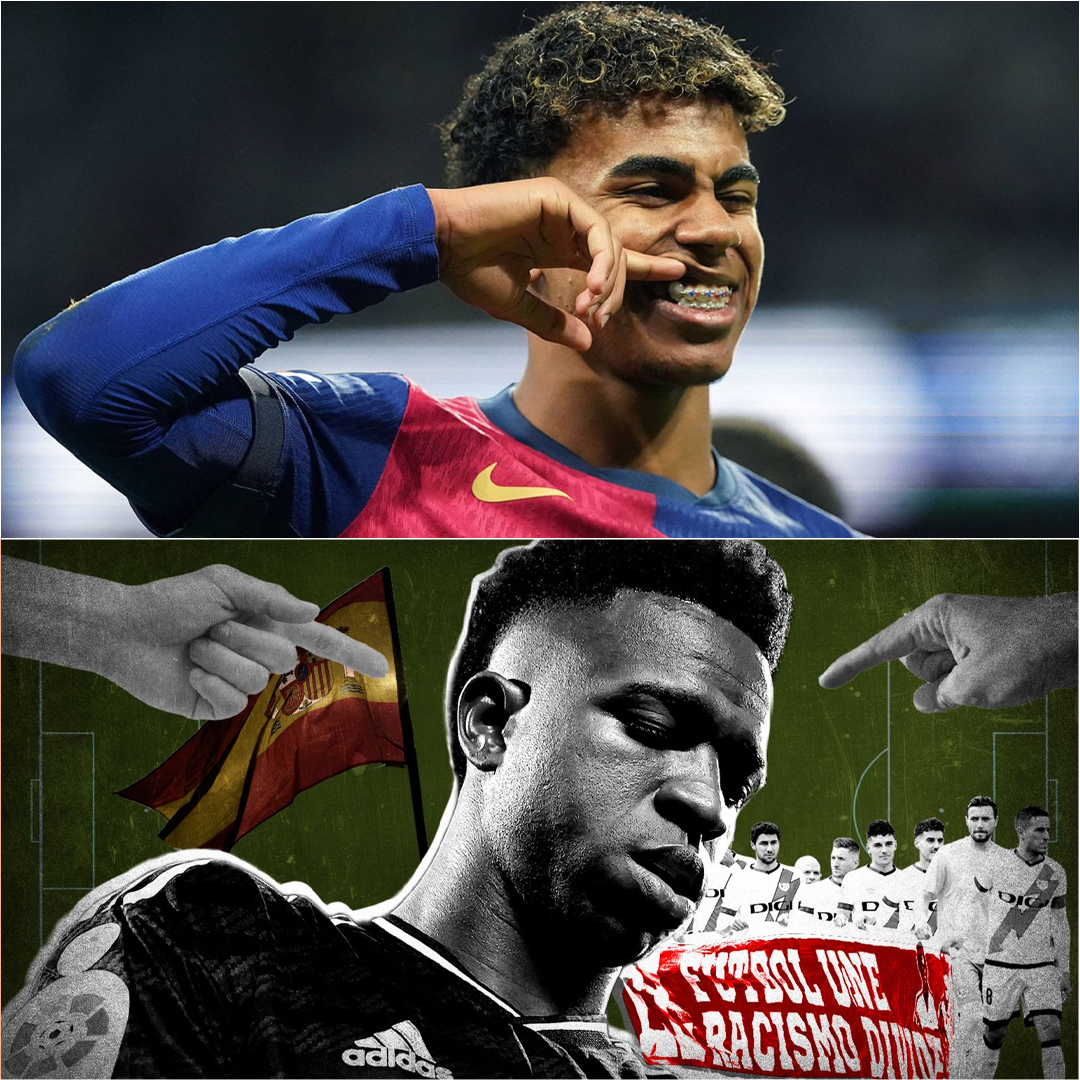Lamine Yamal, the 17-year-old sensation of FC Barcelona and one of the brightest young stars in world football, has recently been revealed as the LaLiga player who endures the most racist abuse on social media. According to a shocking report published by the Observatory for Racism and Xenophobia in Sport, Yamal receives nearly twice as much online hatred as Real Madrid’s Vinícius Júnior, who himself has long been a central figure in the battle against racism in Spanish football. The findings shed light on a deeply troubling reality: the youngest player in LaLiga history to both debut and score is also its most targeted victim of hate.

Despite the alarming statistics, Yamal has shown a remarkable degree of maturity and composure in the face of this adversity. When asked about the relentless wave of racist comments aimed at him, the Barcelona winger responded with calm strength: “What I care about is my football skills and results, not crying and complaining like others.” His statement instantly sparked intense debate among fans and commentators. Some praised Yamal for his stoic attitude and mental resilience, seeing his words as a sign of incredible focus and determination for someone his age. Others, however, criticized the remark as dismissive toward players like Vinícius, who have chosen to speak out more vocally about racial injustice.
Yamal’s comment—particularly the phrase “not crying and complaining like others”—has been widely interpreted as a subtle jab at Vinícius Júnior, who has repeatedly condemned racist chants from opposing fans and called for stronger institutional action. While Vinícius’s activism has been praised globally, it has also divided opinions in Spain, where some accuse him of overreacting or “provoking” supporters with his celebratory style. In contrast, Yamal seems to be positioning himself as someone who prefers silence and performance to protest—letting his brilliance on the pitch speak louder than any statement off it.
The numbers behind the study, however, make it clear that Yamal’s approach does not shield him from racism. Analysts found that much of the abuse directed at him focuses on his Moroccan heritage through his mother and his Equatorial Guinean roots through his father. Many of the hateful messages, often posted anonymously, target both his skin color and background, with some even attacking his family. The frequency and intensity of these slurs have doubled since his breakout performances last season, especially after he became one of Spain’s standout players at the Euro 2024 tournament.
Observers suggest that Yamal’s sudden rise to fame, coupled with his youth and non-European background, make him an easy target for online racists. “The brighter his star shines, the more they try to dim it,” one LaLiga journalist noted. Still, Yamal’s focus on staying composed and not engaging with negativity seems to be a key part of his mindset. His coaches and teammates have praised his discipline, with Barcelona manager Hansi Flick reportedly calling him “a player of extraordinary maturity—he understands that responding with success is the best form of revenge.”

Off the field, there is growing pressure on LaLiga and the Spanish Football Federation to step up their efforts against racism. While both organizations have made promises to improve monitoring systems and enforce stricter punishments for offenders, critics argue that progress has been far too slow. Vinícius himself has repeatedly called out the league for its “weak” stance, and now with Yamal facing an even greater barrage of abuse, many fear that the system is failing its most vulnerable players.
Yamal, however, remains undeterred. He continues to train, score, and smile, refusing to let hate define his career. His attitude sends a powerful message—not one of denial, but of defiance. “I play football because I love it,” he said recently. “What others say about me doesn’t change who I am or what I do on the pitch.” In a world increasingly shaped by online noise, Lamine Yamal’s silence might be his strongest form of protest yet.






